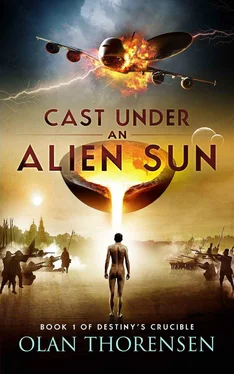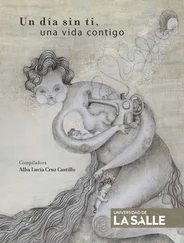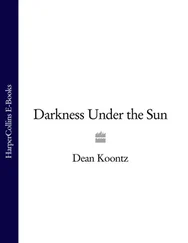“If it has no function, why does it exist?”
Yozef shrugged, but Diera’s reservations were evident.
“Then there’s corruption,” she went on.
“Corruption’s a problem but can be minimized by aseptic conditions.”
“Aseptic? Another of your words I don’t know the reference to.”
“Well, you know, to prevent bacteria from getting to the incision?”
She frowned, frustrated, “Another word. Bacteria? What’s bacteria?”
Whoops. He had to remember to think before speaking. Did they even know of the existence of microorganisms? If they washed their hands, bandages, and instruments before surgery, why wouldn’t they know about bacteria?
“Why do you wash or wipe everything involved in surgery?” Yozef asked.
“It started as a custom to signify purifying the body in preparation for asking God’s mercy, then came to be seen as helping to reduce corruption. How is not certain, but some believe it also wards off dangerous humors. Whatever the cause, it has a positive effect, and it’s standard procedure.”
Okay. No knowledge of bacteria. Another place he needed to start introducing new ideas. He wasn’t sure whether this was one of those times but plunged ahead, regardless.
Yozef took a deep breath. “Bacteria are tiny animals that are so small, you cannot see them, and they are everywhere. They get into a wound or an incision from surgery, and, once inside the body, they multiply and attack it. There are different kinds, and some cause disease and not just corruption. This process we call ‘infections’ and is due to the bacteria.”
Her demeanor reminded Yozef of parents listening to an outrageous story from a child, perhaps a story the child believed to be true.
“Now, Yozef,” she said in a gentle tone, “how can there be animals you can’t see?”
“Why not?” he returned. “Consider the Balmoth.” Yozef had seen pictures of the huge herbivore. Supposedly, there had once been many more of the giants on the island, but numbers had been reduced to small groups in the upland forests. They looked very much like the prehistoric mammal Paraceratheriums of Earth, extinct there for tens of millions of years. At that moment, the thought occurred to him that the Balmoth looked too much like the extinct Earth mammal. Could the transplantation from Earth to Anyar have been going on much longer than he thought? He had been assuming the Earth-like animals and plants were brought here only in the last five thousand years.
“Think of the Balmoth,” he repeated. “Now consider a smaller animal, maybe a large horse. Then one smaller and smaller. What is the smallest known animal?”
Humoring him for the moment, she said, “Well, I guess there are some very small insects. I’ve seen some so tiny, you only notice them when a dark one moves across a white surface, and only if you’re looking right at it at that moment. Brother Wallington knows more about such things. He’s made his life study the animals and the plants of Caedellium.”
I’ll have to talk with this Wallington.
“What if there are animals smaller than those insects? So small your eye can’t see them. Just because they’re smaller than your eye can detect doesn’t mean they aren’t there.”
Diera hesitated as she considered this reasoning. “Yes, I can see what you say. I had never thought of it that way. It could be a Fallacy of Yodrill.”
“A what of who?”
“Yodrill was a scholastic long ago from Melosia. He described a method of logical thinking about any problem. Among his writings are descriptions of common errors in reasoning, still called the Fallacies of Yodrill. What you’re saying is that we’re making the fallacy of assuming something doesn’t exist if we don’t see it. This particular fallacy is warned against when one believes a technique is impossible because one hasn’t seen it work, or a place doesn’t exist because one hasn’t been there. The animals too small to see could be another example. That doesn’t prove they do exist, only that they could exist.
“Anyway,” Yozef said, “you already do procedures that help with destroying these bacteria, you just need to do even more. For example, the surgeries would best be done in closed rooms that have been vigorously cleaned, where the outside air is not free to bring in more bacteria. The same with too many people in the room. Only those medicants performing the surgery should be present, and all should wear clean clothing and masks, so you won’t breathe on any open incisions.”
Yozef stopped with his suggestions. Those were all he could remember from TV, movies, and books. He also thought it best not to hit Diera with too much at one time.
Discomforting Hope
Later that evening, Sistian Beynom returned from visiting a nearby village and found his wife sitting on their porch, staring off into the twilight. He climbed the six steps and stood beside her. She continued her faraway gaze, oblivious to his presence.
“Diera?” he asked softly. No response. “Diera!” he said more urgently, now beginning to be concerned. She stirred, her eyes focusing, and noticed him standing next to her.
“Oh, Sistian. I didn’t see you come.”
“Is everything all right, Diera?”
“All right?” she echoed. “Is everything all right? I think it is. Maybe that’s the problem. I think everything is all right, though I’m not sure.”
Sistian sat next her and took one of her hands in his. “What’s the matter, Dear?”
She looked at him, saw his concern, and gave a small and what she hoped was reassuring smile. “It’s nothing to worry about. Not as if I’m ill or anything. It’s just that I have so many emotions right now, I’m not sure what I’m feeling.”
“What kind of emotions?”
She smiled wryly, “Confusion, wonder, caution, fear, surprise, hope, excitement.”
“About what?”
“About how we help people. How we practice medicine. Are we much better than the primitive tribal shamans in our histories and stories, treating patients with concoctions of herbs and whatnot because of superstitions?”
Sistian frowned. Diera was among the most conscientious medicants he knew, totally committed to helping her patients, and tireless in searching for new medicines and procedures. She fought endless skirmishes, especially with older medicants who resisted changing practices long established, whether or not they seemed efficacious.
“I assume something happened today to suddenly make you doubt your calling.”
“Oh, yes. Not only s omething happened, but someone . Yozef.”
“Yozef?” said a startled Sistian. “What happened today involving Yozef?”
Diera described to her husband the patient brought in with the abdominal pain and her calling in Yozef to see if his people knew of any treatment for the conditions.
“And did he know something?”
“Dearest, he not only knew what the problem was, he told me how to cure it, what caused it, and gave an explanation about the general causes of diseases.”
Sistian sat back in his chair. “Those are quite astounding assertions. I think you need to tell me more details.”
For the next half hour, the abbess did. She recounted Yozef’s knowing details of the “appendix,” as he called it, and giving a plausible explanation of the pain, of fever, of the consequences without treatment, of the surgical treatment, and of the tiny animals that cause many diseases.
“How do you know what he told you is accurate? He’s not a medicant himself.”
“Ah, Sistian,” his wife murmured, “as usual, you have cut right to the heart of the matter. You’re right. Yozef is not a trained medicant. In many ways, he’s ignorant of details of treating illness and injuries. That’s what is hitting me the most. What he considers common knowledge may be more than all we think we know. And how should that make me feel? Like one of those primitive tribal shamans?”
Читать дальше












